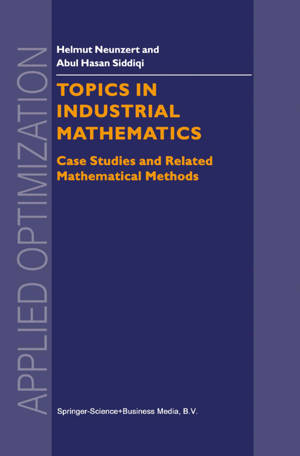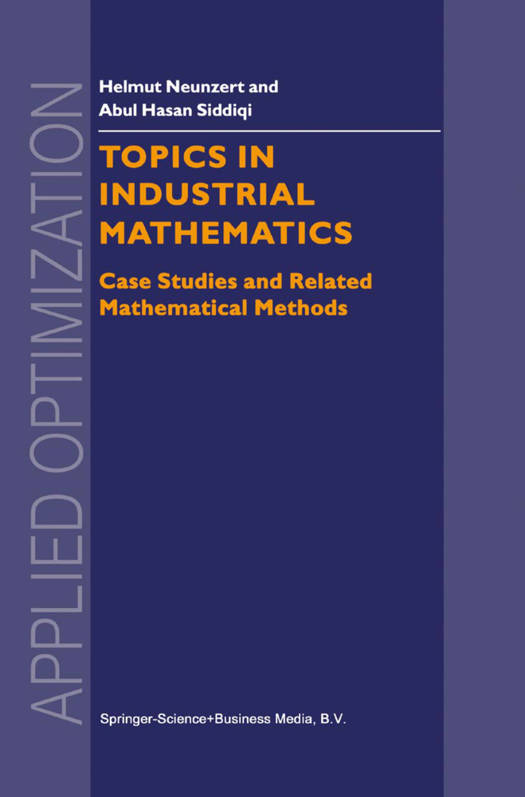
- Afhalen na 1 uur in een winkel met voorraad
- Gratis thuislevering in België vanaf € 30
- Ruim aanbod met 7 miljoen producten
- Afhalen na 1 uur in een winkel met voorraad
- Gratis thuislevering in België vanaf € 30
- Ruim aanbod met 7 miljoen producten
Zoeken
Topics in Industrial Mathematics
Case Studies and Related Mathematical Methods
H Neunzert, Abul Hasan Siddiqi
€ 167,95
+ 335 punten
Uitvoering
Omschrijving
Industrial Mathematics is a relatively recent discipline. It is concerned primarily with transforming technical, organizational and economic problems posed by indus- try into mathematical problems; "solving" these problems byapproximative methods of analytical and/or numerical nature; and finally reinterpreting the results in terms of the original problems. In short, industrial mathematics is modelling and scientific computing of industrial problems. Industrial mathematicians are bridge-builders: they build bridges from the field of mathematics to the practical world; to do that they need to know about both sides, the problems from the companies and ideas and methods from mathematics. As mathematicians, they have to be generalists. If you enter the world of indus- try, you never know which kind of problems you will encounter, and which kind of mathematical concepts and methods you will need to solve them. Hence, to be a good "industrial mathematician" you need to know a good deal of mathematics as well as ideas already common in engineering and modern mathematics with tremen- dous potential for application. Mathematical concepts like wavelets, pseudorandom numbers, inverse problems, multigrid etc., introduced during the last 20 years have recently started entering the world of real applications. Industrial mathematics consists of modelling, discretization, analysis and visu- alization. To make a good model, to transform the industrial problem into a math- ematical one such that you can trust the prediction of the model is no easy task.
Specificaties
Betrokkenen
- Auteur(s):
- Uitgeverij:
Inhoud
- Aantal bladzijden:
- 377
- Taal:
- Engels
- Reeks:
- Reeksnummer:
- nr. 42
Eigenschappen
- Productcode (EAN):
- 9781441948335
- Verschijningsdatum:
- 19/11/2010
- Uitvoering:
- Paperback
- Formaat:
- Trade paperback (VS)
- Afmetingen:
- 160 mm x 240 mm
- Gewicht:
- 598 g

Alleen bij Standaard Boekhandel
+ 335 punten op je klantenkaart van Standaard Boekhandel
Beoordelingen
We publiceren alleen reviews die voldoen aan de voorwaarden voor reviews. Bekijk onze voorwaarden voor reviews.











